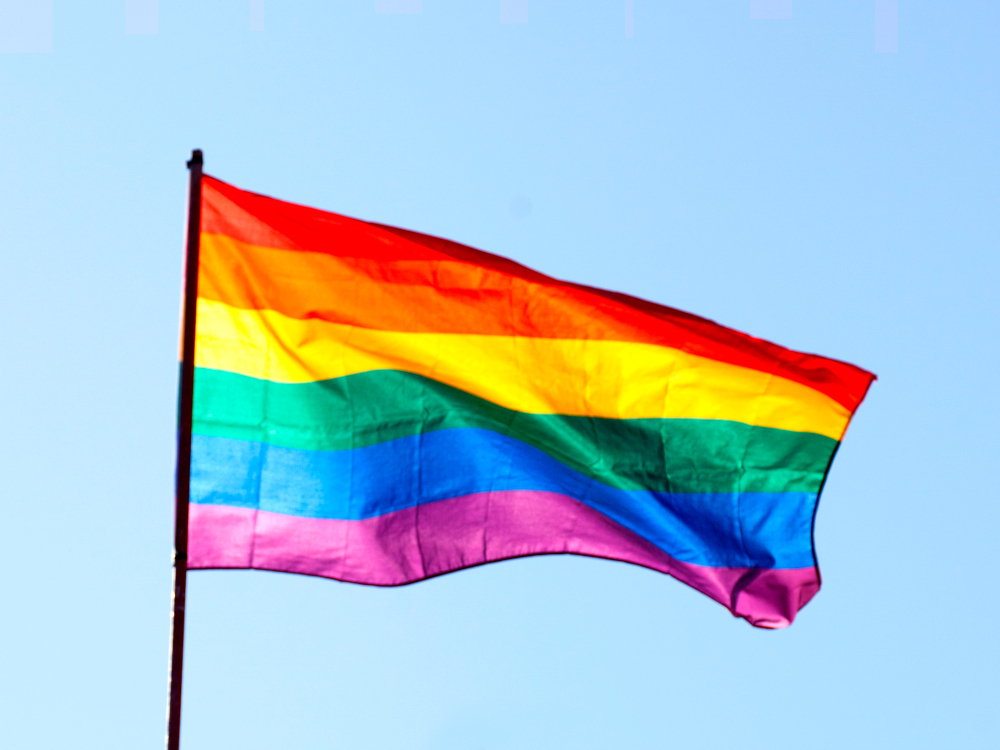Matthew Ventura writes on dignity and respect for LGBTQIA people.
This week I’ve been thinking about how there’s so much more space for middle ground than we sometimes acknowledge. I don’t mean to say that being in the centre or remaining neutral on important issues is superior, but I think even while different communities hold opposing views strongly, there’s still a lot of room to express our values in overlapping ways that are mutually beneficial.
Today, in honour of IDAHOBIT Day, [Yesterday for The Other Cheek readers], I’d like to share some ideas of ways that someone with conservative Christian views could show their support for LGBTQIA+ image-bearers. I see no reason why these gestures would be incompatible with any Christian beliefs; in fact, I think a Christian worldview should actively compel us to this sort of action.
Imagine a world where conservative Christians and queer activists [and those who are both!] could unite on compassionate acts like this without seeing it as letting the other side ‘win.’ Not every issue has to be a battleground.
- Consider sponsoring the therapy costs for a queer person. One of my gay friends received generous support from an anonymous sponsor through his Presbyterian church, and this made counselling affordable to him. (If you want ideas of how to do this practically, send me a message and I’d be happy to facilitate getting your support to someone in need.)
- Read books and/or listen to podcasts and educate yourself on the lived experiences of same-sex attracted and queer people. Do some of your own theological thinking so we don’t have to educate you ourselves. A great way to start is by asking your queer friends which books they wish people in their lives would listen to to understand them better, then committing to reading those books. (If you don’t have queer friends yet, send me a message and I can help with recommendations.)
- Support the work of [healthy] Christian LGBTQIA+ organisations that are already working to empower and support queer Christians. You could sponsor someone’s registration costs to attend Revoice conference, support a Posture Shiftstaffworker, or support the bridge-building ministry of outreach organisations like Kaleidoscope. Sadly we don’t have many Australian equivalents of these ministries yet, but many Aussie queer Christians benefit from their global ministry and could benefit even more so with financial support.
- Financially support a queer person leading ministry within a larger Christian organisation like the AFES, IV, or a mission organisation. Often it’s extremely costly (financially as well as emotionally) to simply exist as a queer person in these organisations, and when your income is fundraised through donors, most queer people have to choose between being visible or being financially stable. In a world where donors threaten to withdraw support from openly queer people, consider becoming the financial stability they need to keep serving in these vital ministries.
- Advocate for unisex bathrooms in your church, school, and workplace. If you don’t believe in gender transitioning, offering a safe alternative bathroom for people who don’t identify with their birth gender is the very least you can do to make your own position livable.
- Advocate for easier name change processes that don’t require a trans person to undergo surgery and/or hormone therapy first. If you believe people should not pursue gender-affirming care like surgery, then you have an obligation to make it easier for people to access the services they need without surgery as the prerequisite. This includes improving accessibility in changing names on official documents (like birth certificates) as well as social spaces (like Facebook name change policies).
- Advocate for easier processes to change gender in official records for the same reasons as above. This includes improving accessibility in areas like school records and organisation databases as well as legal/government documentation.
- Advocate for free counselling services for trans and gender-diverse people to close the life expectancy gap.
- Advocate for emergency housing services for trans and gender-diverse people to close the homelessness gap, especially for those escaping domestic violence and/or made homeless by their own families. Meeting these basic human needs shouldn’t be a difficult sell to genuine Christians, but again, if your convictions are that a [male-to-female] trans woman shouldn’t be housed in a women’s shelter, then you have a moral obligation to provide safe alternatives.
- Financially support these services.
- Practice using gender-neutral and/or gender-inclusive language to avoid unnecessarily triggering someone’s gender dysphoria. If your church teaches that someone with gender dysphoria should not transition to the gender they identify with, you have an obligation to make that livable by minimising hazards that trigger or intensify that dysphoria. When you use well-intentioned binary language like “we’re all brothers and sisters in Christ,” knowing that this person has chosen not to transition to male but feels misgendered when described as female, you risk heightening their gender dysphoria every time you say that phrase. A zero-cost alternative that is perfectly compatible with a conservative worldview is either using gender-neutral options (“siblings in Christ”), which are usually more succinct anyway, or using gender-inclusive language (“brothers, sisters, and siblings in Christ.”).
I’m sure there are loads of other ideas we could add to the list – comment your ideas and I’ll update the list over time!
This piece was first published at Singledout and republished with permission.

